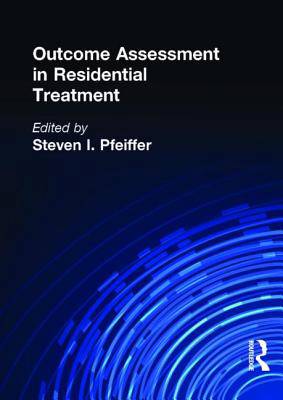
- Retrait gratuit dans votre magasin Club
- 7.000.000 titres dans notre catalogue
- Payer en toute sécurité
- Toujours un magasin près de chez vous
- Retrait gratuit dans votre magasin Club
- 7.000.0000 titres dans notre catalogue
- Payer en toute sécurité
- Toujours un magasin près de chez vous
Description
As residential treatment centers and psychiatric hospitals are increasingly asked to document their effectiveness, it is essential for mental health care providers to demonstrate the efficacy and cost-effectiveness of the services they provide. Outcome Assessment in Residential Treatment helps health care providers demonstrate that their planned treatment is necessary and active rather than simply custodial. A practitioner's guide to conducting treatment outcome assessment projects, this innovative book presents readers with historical perspectives, current issues, and practical suggestions for implementing an outcome assessment project.Outcome Assessment in Residential Treatment guides psychiatrists, psychologists, mental health practitioners, and social program administrators in addressing which therapeutic components contribute to the goals and objectives of their programs and which may require modification, radical revision, or even elimination. It helps residential treatment centers and psychiatric treatment facilities document treatment successes and better understand which factors (within the client, family, environment, treatment setting, or combinations therein) predict successful outcome. This objective data empowers readers to influence government and industry, enhance public awareness of the needs of severely disturbed children and youth, and validate the usefulness of intensive psychiatric treatment.Unlike other books on treatment outcome, Outcome Assessment in Residential Treatment tells readers how to determine clinically significant improvement and not simply statistically significant change. It gives practical, detailed, proven advice on how to carry out studies that will benefit residential treatment centers and the psychiatric and mental health fields. Contributors provide tools to validate/demonstrate that psychiatric and mental health treatments are effective. They offer insight into:
- planning a treatment outcome project
- recognizing ethical, practical, methodological, logistical, and clinical considerations in implementing a treatment outcome project
- selecting instruments to assess treatment outcome and measuring success
- comparing different outcome measuresHealth care providers must have accurate information about treatment outcomes to demonstrate that specific services are beneficial, cost-effective, and well-received by the client. Outcome Assessment in Residential Treatment helps readers evaluate the impact a treatment program has on a client's clinical status and psychosocial and educational functioning, making it possible to provide an objective yardstick for the payer's evaluation of the quality of care provided.Psychiatrists, psychologists, mental health practitioners, and social program administrators will find Outcome Assessment in Residential Treatment an essential guide to evaluating and understanding the relative effects of specific interventions or procedures on the quality and effectiveness of their services. They will use this information to make appropriate changes which guarantee that they best meet their clients'mental health care needs.
Spécifications
Parties prenantes
- Auteur(s) :
- Editeur:
Contenu
- Nombre de pages :
- 110
- Langue:
- Anglais
Caractéristiques
- EAN:
- 9781560248392
- Date de parution :
- 13-08-96
- Format:
- Livre relié
- Format numérique:
- Genaaid
- Dimensions :
- 151 mm x 224 mm
- Poids :
- 362 g

Les avis
Nous publions uniquement les avis qui respectent les conditions requises. Consultez nos conditions pour les avis.






